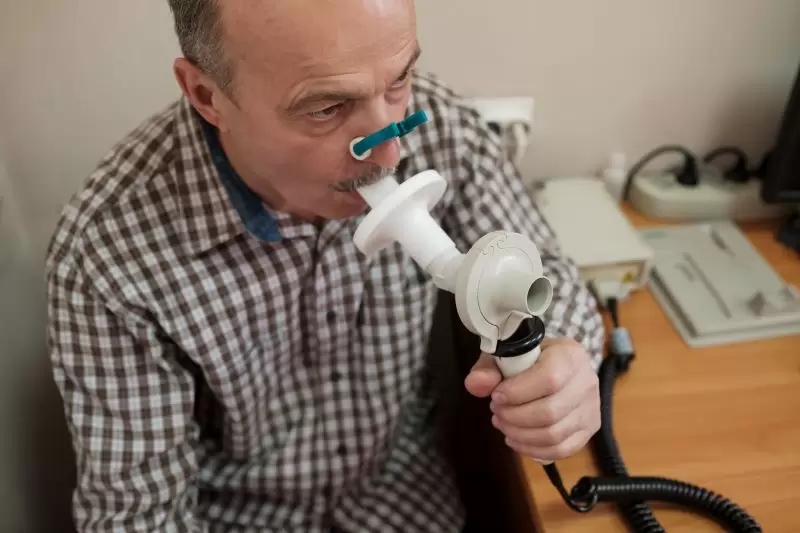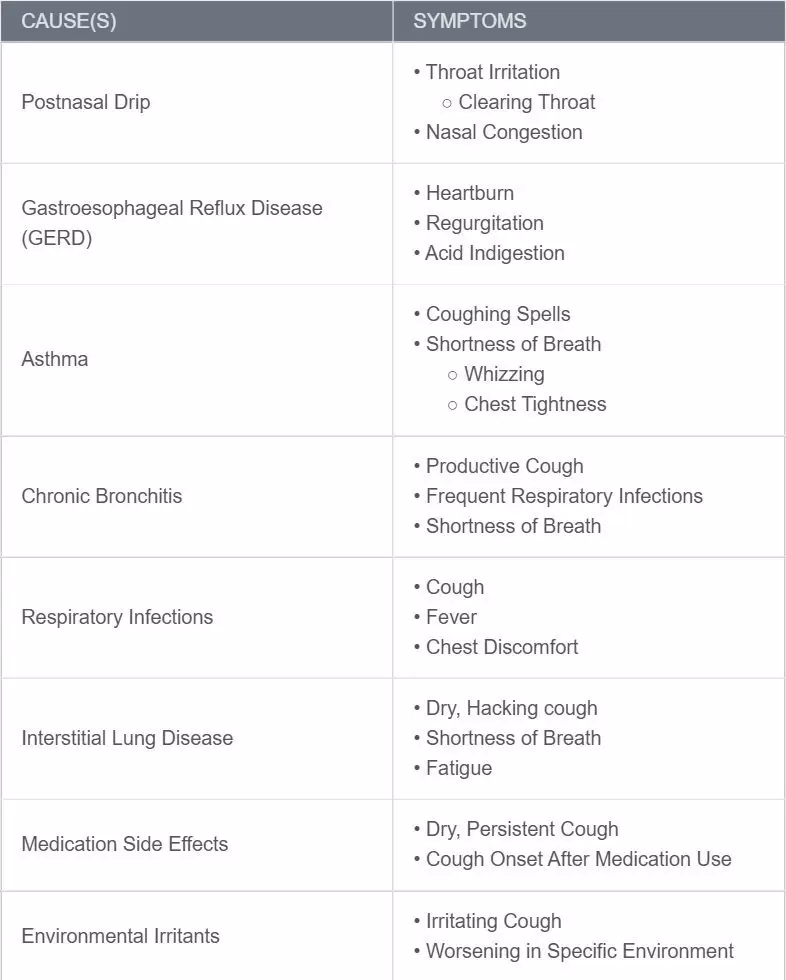Chronic Cough - Overview, Symptoms & Treatment
Overview
Coughing is currently viewed as the human body’s immune response to lung irritants and secretions. As such, the body will occasionally cough to get rid of the foreign entities in the body and protect it against disease. However, some of these foreign entities may persist, causing the body to cough constantly. If the patient continues to cough for more than a week, then they may have contracted chronic cough. Having a cough that hangs on for several weeks can have various negative impacts on the human body.

These negative impacts include:
- Sleep deprivation
- Producing large amounts of sweat
- Dizziness
- Headache
- Vomiting
- Urine Incontinence
- Fractured Ribs
- Fainting
Therefore, it is highly recommended that chronic cough be treated as soon as possible, as the duration of the condition may vary depending on the patient’s age and the cause of the cough. Currently, the most common causes of chronic cough are smoking, postnasal drip, Gastroesophageal Reflux Disease (GERD), asthma, and chronic bronchitis. By identifying the cause of chronic cough, clinics will be able to provide treatments that will help resolve the source of the cough.
Symptoms
As Singapore is a small but highly developed country with a population of close to 6 million people as of 2024, it is very easy for Singaporeans to develop a chronic cough. There are several causes for a patient to develop a chronic cough.

Most common causes of chronic cough :
• Postnasal Drip:
Mucus dripping down the back of the throat due to conditions like allergic rhinitis or sinusitis can lead to irritation and a persistent cough.
• Gastroesophageal Reflux Disease (GERD):
Stomach acid flowing back into the oesophagus can cause chronic cough.
• Asthma:
If chronic inflammation were to accumulate in the airways of patients with asthma, this can result in them coughing.
• Chronic Bronchitis:
Inflammation of the bronchial tubes, often associated with smoking, can cause persistent coughing.
• Respiratory Infections:
Respiratory infections such as bronchitis or tuberculosis can lead to a chronic cough.
• Interstitial Lung Disease:
Conditions causing fibrosis or scarring of the lungs may result in a persistent cough.
• Medication Side Effects:
Certain medications, such as ACE inhibitors used for blood pressure, may cause chronic cough as a side effect.
• Environmental Irritants:
Exposure to irritants like smoke, pollution, or occupational dust can lead to persistent coughing.
Each cause of chronic cough will present with constant coughing, followed by a distinct set of symptoms.
Causes for Chronic Cough and its Symptoms

Regardless of the symptoms, if the person in question begins coughing up blood or sputum, or experiences sleep deprivation due to coughing, it is advised that they visit a clinic without delay.
Treatment
When treating chronic cough, it is important to avoid any self-diagnosis or self-treatment without professional help as it can delay recovery. Therefore, the patient should seek professional help as healthcare providers are the most knowledgeable in treating diseases. Whether it’s the medical clinic in Orchard Road or an expat clinic in Singapore, so long as the clinic’s doctor is a professional, they will be able to provide solutions.

Even so, before the treatment can begin, the doctor has to identify the underlying cause as stated previously. This first step will require the clinic’s doctor to receive the patient’s medical history and perform a physical examination on the patient’s body. The clinic’s doctor may also perform a diagnostic test for an uncommon cause.
Such diagnostic tests include an imaging test where the clinic will take X-Rays and Computerised Ttomography (CT) scans. Imaging tests allow professionals to inspect the condition inside the patient’s lungs and determine the cause of the constant cough.
In addition to imaging tests, there is also the lung function test. A lung function test uses a spirometry, a device that helps to diagnose asthma or COPD by measuring the capacity of the lungs and how fast a person can exhale. Plus, any mucus the patient may have coughed out can be taken as a sample to test for the presence of bacteria.
Conclusion
Finally, if the doctor is unable to determine the cause of the patient’s chronic cough, they will perform a scope test to look for the possible causes. This scope test includes a Bronchoscopy, which is a thin flexible tube equipped with a light and camera at the end. With a Bronchoscopy, the doctor can view the interior of the patient’s lungs and air passages. Another scope test is the Rhinoscopy, used to look into the patient’s nasal passageway, sinus, and the upper airway.
Once the doctor determines the cause of the patient’s cough and the treatment needed, they will usually prescribe the patient a cough suppressant to help alleviate symptoms more quickly. Nevertheless, it should be noted that the cough suppressants do not resolve the cause of chronic cough and should be taken in moderation.
When the cause has been identified, the clinic will provide the patient with a treatment plan to resolve their chronic cough. This treatment usually involves the patient taking certain medications and making lifestyle changes. For instance, the doctor will give the patient antihistamines, corticosteroids and decongestants to relieve them of their allergies and advise them to drink plenty of warm fluid in order to cure the patient of postnasal drip. Another example would be to provide the patient with acid blocker as it can help them quit smoking, though some will require surgery to be successful.
In summary, a chronic cough is defined as constant cough which can negatively impact health by causing sleep deprivation, headaches, higher occurrences of vomiting and dizziness, increased sweat production, a weak bladder control. Therefore, it is important for patients to visit a clinic to receive treatment as soon as symptoms of chronic cough appear, to help alleviate their condition effectively.
